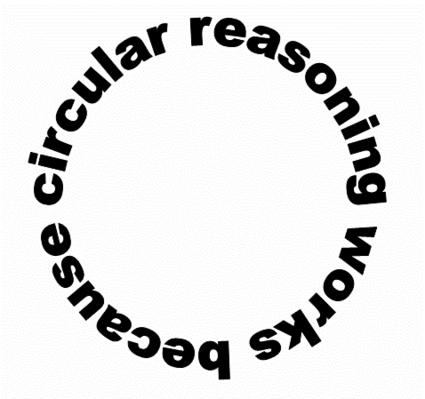See the introductory post, New Upcoming Project: Refutation of William Whitaker's Disputation on Holy Scripture on Sola Scriptura.
I am utilizing a copy of the book available at Internet Archive.
Whitaker's words will be in blue. Page numbers will correspond to the above book version.
* * *
Our FIFTH argument is taken from the words of the apostle, 2 Cor. iv. 3, which are these: "If our gospel be hid, it is hid to them that are lost." Therefore the gospel is plain and manifest, and, consequently, also the evangelic scripture, save only to those who, with a blind impulse, rush headlong upon their own destruction. (p. 387)
Several gratuitous assumptions are made by Whitaker. He's jumping way ahead of himself and the text. First of all, the "gospel" is not all of Scripture, but rather, the good news of the incarnation, life, atoning, redeeming death on the cross, resurrection, and ascension of our Lord Jesus. Paul's dynamic here is "hidden vs. revealed" -- not clear / plain vs. unclear.
Lots of things are revealed but not totally understood or clear. This is true of God Himself, Who has revealed Himself, yet remains a mystery and above is in many ways ("my thoughts are not your thoughts," etc.). Who can understand omnipresence or eternity or creation out of nothing? The sun is fully revealed; it doesn't follow that we understand everything about it.
In any event, a preached, revealed gospel is hardly analogous to a supposed plain, perspicuous written Scripture (for all major salvific doctrines), over against interpretation and the guidance of Holy Mother Church. The gospel is only a portion of that Scripture. It's impossible to generalize from one to the other.
. . . it is evident from the second verse of the same chapter, that Paul speaks of the knowledge of scripture, and therefore of the whole doctrine of the gospel. (p. 387)
Let's take a look at that passage:
2 Corinthians 4:2 (RSV) We have renounced disgraceful, underhanded ways; we refuse to practice cunning or to tamper with God's word, but by the open statement of the truth we would commend ourselves to every man's conscience in the sight of God.
The problem is that "God's word" here (as so often: "word of God"; "word of the Lord") is not necessarily or even likely a reference to Holy Scripture. Thayer's Greek-English Lexicon of the New Testament confirms that it is not, defining it in 2 Corinthians 4:2 as "what is communicated by instruction, . . . the doctrines of faith . . . specifically, the doctrine concerning the attainment through Christ of salvation in the kingdom of God . . ." Even more specifically, for this passage, Thayer states that it is "the doctrine which he commanded to be delivered."
This can't be used as a proof for sola Scriptura because Paul uses terms for what is "delivered" and "received" synonymously: gospel (1 Cor 15:1; Gal 1:9; 1 Thess 2:9), word of God (1 Thess 2:13), tradition (2 Thess 3:6), and traditions (1 Cor 11:2; 2 Thess 2:15). He even specifically espouses authoritative oral tradition (2 Tim 1:13-14; 2:2). If this passage proves a perspicuous Bible, then it also proves a perspicuous tradition; therefore, for a Protestant it proves too much; proves what is disbelieved, and thus, must be discarded.
. . . if he confess that the knowledge of Christ is manifest in the scriptures, we desire no more; for this is as much as we require or contend for, that all things necessary to salvation may be easily known from scripture. For if we openly and easily know Christ from the scriptures, we certainly understand from the scriptures all things necessary to salvation. (p. 387)
There are still many doctrinal areas where the individual could be led astray (thus the Church is still necessary). If we "know Christ" but believe wrong things about Him: that He was created and not part of the Holy Trinity (Arianism, Jehovah's Witnesses) or is merely one example of what all men could be (Mormonism), or has but one nature (Monophysitism) or one will (Monothelitism), or is also God the Father (Sabellianism or Modal Monarchianism), or never became man (Gnosticism), then this is not the Jesus Christ of the Bible, history, or of the Catholic (and larger Christian) faith. It is, in fact, a different "Jesus" altogether:
Matthew 24:5, 24 For many will come in my name, saying, 'I am the Christ,' and they will lead many astray. . . . For false Christs and false prophets will arise and show great signs and wonders, so as to lead astray, if possible, even the elect.
Mark 13:6 Many will come in my name, saying, 'I am he!' and they will lead many astray.
Luke 21:8 And he said, "Take heed that you are not led astray; for many will come in my name, saying, 'I am he!' and, 'The time is at hand!' Do not go after them.
Therefore, teaching authority is still required, because of the various heresies that have to do with Christology. Whitaker says we simply read the Bible and learn about the true Christ, but the fact remains that many do so and come up with false theology: denying the Trinity, or the incarnation, or the divinity of Jesus, or any number of things.
These men concede that Christ is openly set forth in the scriptures: from which admission we shall easily prove that the scriptures should be diligently read to the people, that they may understand Christ from the scriptures; since they who have obtained him, and learned him aright, want nothing for eternal salvation. (p. 387)
Yes; He must be "learned aright" and that requires human teachers who are passing down orthodox Christology.
***

















.jpg)


